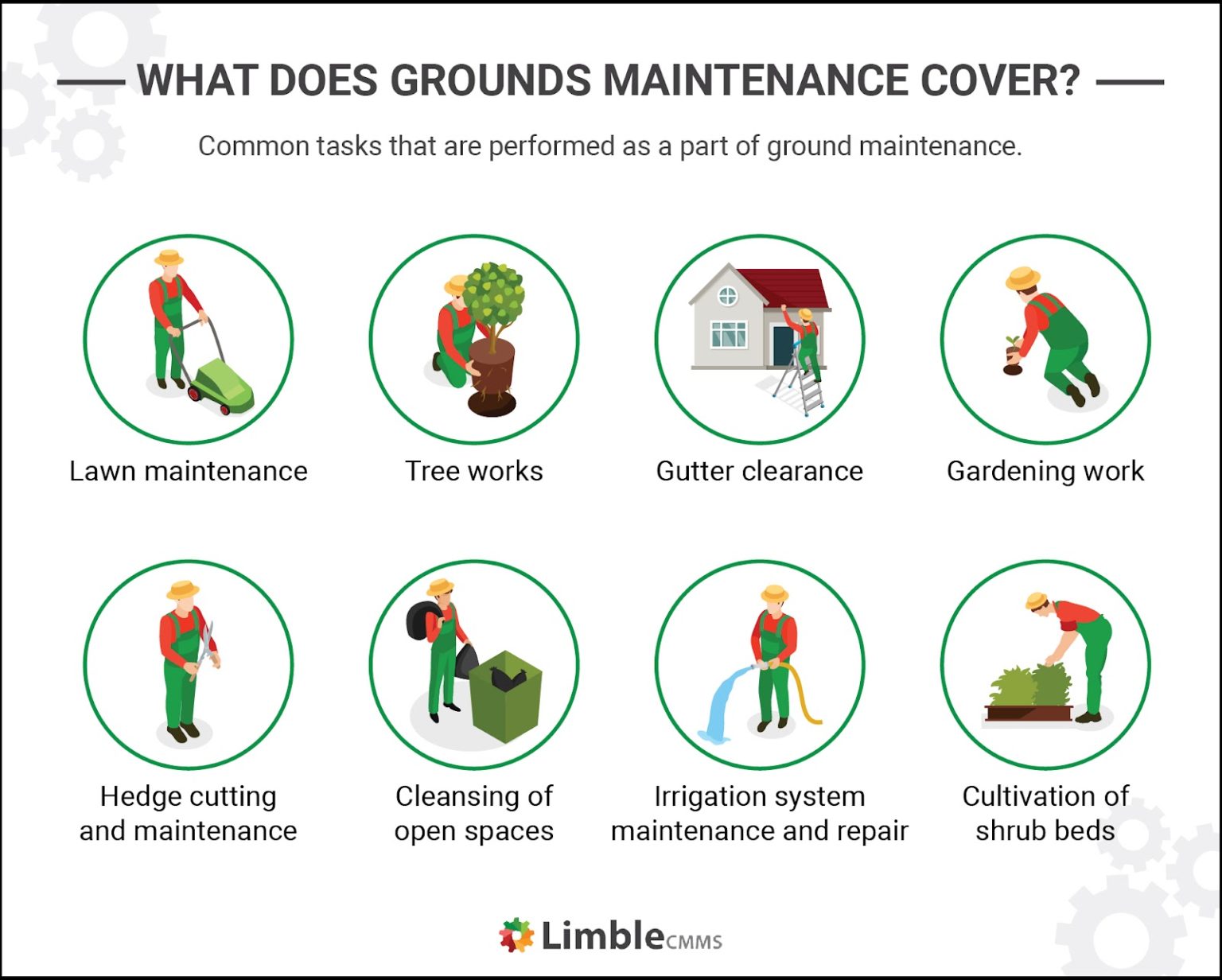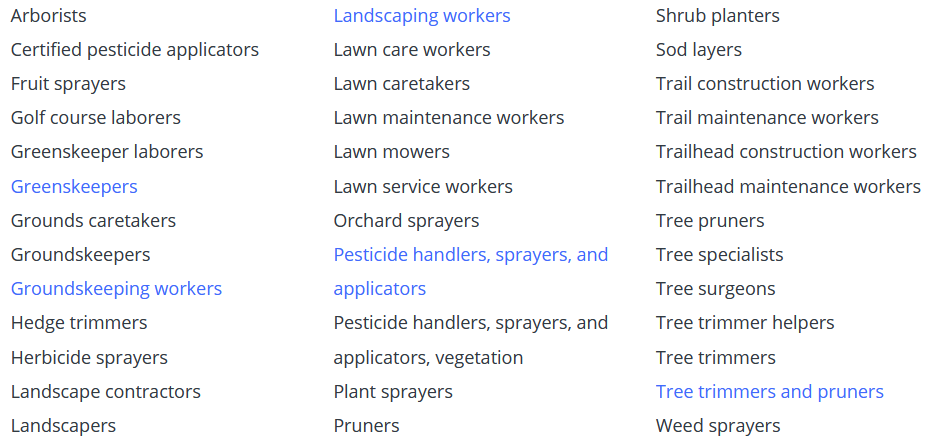Grounds Maintenance
Everything you ever needed to know about grounds maintenance.
What is ground maintenance?
Ground maintenance is the process of creating and ensuring a pleasant and functional outdoor environment on your property that preserves its value.
Ground maintenance can also include care of indoor natural areas or features such as nurseries or potted plants.
Some examples of grounds maintenance tasks are:
- Lawn, hedge, tree, and other plant and landscape maintenance
- “Planting” and maintaining artificial grasses and turf
- Fence and gutter maintenance
- Gardening and pest control
- Irrigation system maintenance and repair
- Snow clearance and grit application
- Cleaning open spaces (picking up litter, emptying bins, etc.)
- Maintenance of hard, functional surfaces (like basketball and tennis courts)

Which organizations need ground maintenance?
Any organization that owns property or a facility with outdoor or natural space will need some form of grounds maintenance. Outdoor public facilities that communities use every day immediately to mind:
- City parks
- Golf courses
- Resort hotels
- Residential neighborhoods with communal outdoor spaces
- Cemeteries
- Athletic fields
Other privately owned properties need varying degrees of grounds maintenance, too.
Some facilities in urban areas will have minimal or communally maintained outdoor spaces and, therefore, less need. But for the most part, the more outdoor space your facility has, the more grounds maintenance work you will need.
Organizations with grounds maintenance needs typically fall within one of four categories:
- Organizations with a lot of outdoor space (schools, college campuses, fitness facilities, resorts)
- Places where appearance is very important (apartment complexes, shopping centers, theme parks, hotels, zoos, botanical gardens)
- Sports facilities (golf courses, football stadiums, and other similar sports locations)
- Public properties (public parks, cemeteries, memorial gardens)
Types of grounds maintenance workers
There are just as many different kinds of grounds maintenance workers out there as organizations that hire them.

Many have similar or overlapping core responsibilities, but there is still room for specialization, growth, and advancement. Here are some common types of grounds maintenance workers:
Groundskeepers
Groundskeepers mow the lawn, care for plants and trees, ensure snow removal, lawn care, and upkeep of sidewalks, parking lots, fountains, fences, groundskeeping equipment, and other general property assets.
In the more northern regions of the United States, groundskeepers may also focus on ice management throughout the winter.
Greenskeepers
Similar to groundskeepers, greenskeepers focus on golf course maintenance. They do a similar variety of tasks, such as mowing and general maintenance services, plus specialized golf course-related jobs like relocating holes and repairing tee markers.
Landscaping workers
Landscapers maintain a planned outdoor landscape design. They plant flowers, small trees, and shrubs or fertilize the soil, trim hedges, and mulch landscapes. They may install systems like lighting, sprinklers, or indoor gardens to maintain the look and feel of an overall landscape design.
Pesticide handlers, sprayers, and applicators
These workers prevent or control weeds, insect infestations, and diseases by applying herbicides, fungicides, and insecticides. They can also work with fertilizers, pesticides, and other chemicals to stimulate growth and solve other lawn problems.
Tree trimmers and pruners (a.k.a. arborists):
These workers maintain arboriculture by using chainsaws, chippers, stump grinders, power pruners, and other moderately heavy equipment to clear dead or unwanted trees or branches from shrubs.
This helps keep utility lines, roads, and sidewalks clear and generally maintains a landscape design. They might specialize in diagnosing and treating tree diseases or placing ornamental trees and shrubs.
Grounds maintenance worker training and certifications
Many grounds maintenance jobs do not require any formal education beyond high school as workers can be trained on the job. As a result, however, many become specialized in a specific kind of grounds maintenance with more experience.
Some highly specialized grounds maintenance jobs require certifications or formal training in horticulture or landscape design.
Other general certifications such as:
These certifications offered by the Professional Grounds Management Society (PGMS) are great ways to advance your career as a grounds maintenance worker.
In the case of landscape design specifically, many make a career working with or starting their own landscaping business.
Many soft skills can also separate a good grounds maintenance worker from a great one.
- Attention-to-detail
- Organization and prioritization skills
- Good physical health
- General knowledge or ability to learn lawn and plant maintenance skills and equipment operation such as lawnmowers, hedge trimmers, etc.
Want to see Limble in action? Get started for free today!
Where organizations can find grounds maintenance workers
Many organizations that have a large amount of outdoor space or grounds maintenance needs will hire their own groundskeeping workers directly.
However, some organizations have a small or moderately sized property that doesn’t require dedicated staff, but they still want to maintain a pleasant outdoor environment. These organizations may outsource this activity to a property management agency.
Property management agencies have a strong team of workers and specializations on staff to meet any need and offer grounds maintenance workers a stable and reliable employment option.


